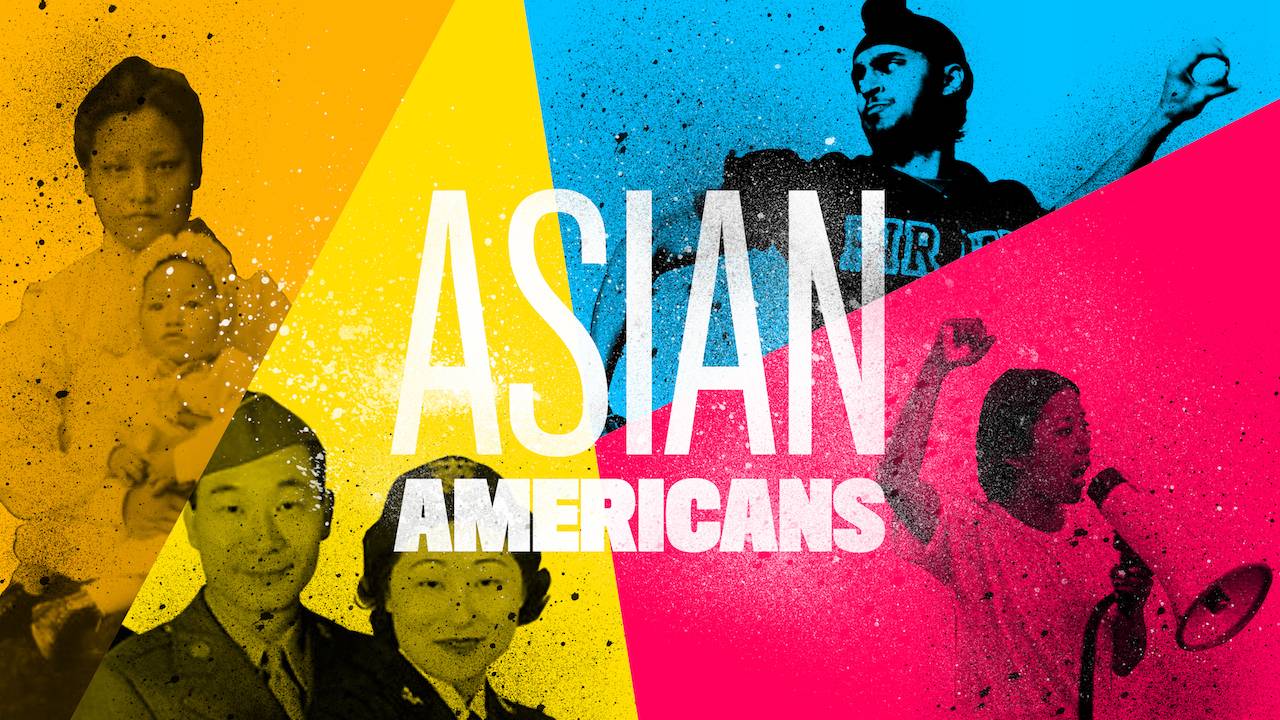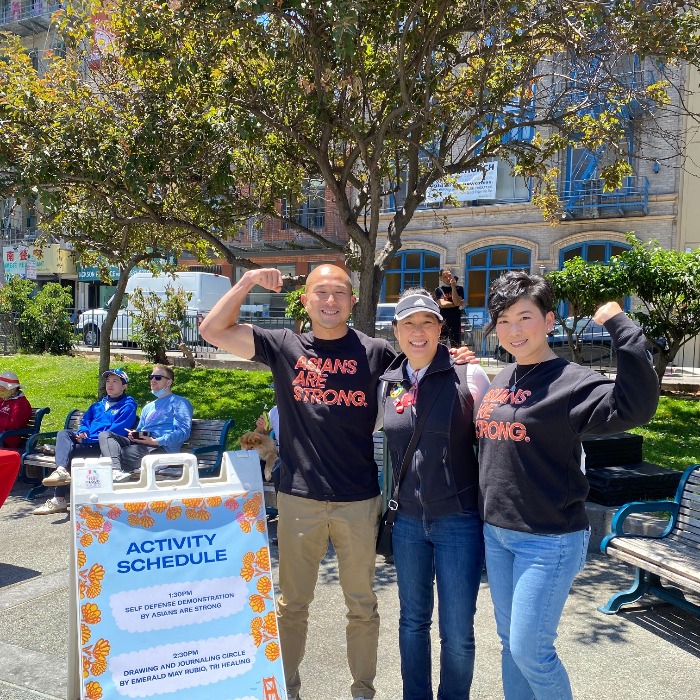| | | Dear Friends, With the Fourth of July weekend comes fireworks (invented by Chinese), barbeques (KBBQ is supreme), lifting mask restrictions (freedom?), and reflections on our place in this country’s history (watch Peabody Award winning documentary "Asian Americans"). Thanks for your continued support of the 1990 Institute and newsletter, and please encourage your friends to subscribe so they can get this great content straight to their inboxes. |
| |  | |
|
| What is next for the House’s EAGLE Act bill and how will its anti-Chinese rhetoric affect Asian Americans? By Frances Kai-Hwa Wang
"I believe America will be best positioned to compete with China if it leads and engages the world again,” U.S. Rep. Gregory W. Meeks (D-NY) told Brookings Institute. “The EAGLE Act returns America to the world stage.” On Wednesday, June 30, U.S. House of Representatives Foreign Affairs Committee began debating and considering amendments to bill H.R.3524, Ensuring American Global Leadership and Engagement Act or the EAGLE Act, introduced by Rep. Meeks. This bill seeks to boost economic competitiveness against China; revitalize and reassert U.S. leadership, investment, and engagement in the Indo-Pacific region and globally; enhance U.S.-Taiwan partnership; and push China on human rights. "I sincerely believe that the United States fell behind, not by supporting China’s rise, but by becoming complacent and shortsighted about bolstering the international order and our alliance system,” said Rep. Meeks. “The last administration forgot that if we don’t lead the world, someone else will take on the mantle. The PRC in many ways saw a vacuum and filled it.” Last month, in a rare show of bipartisan support, the U.S. Senate passed bill S.1260, United States Innovation and Competition Act of 2021, by 68-32. S.1260 seeks to challenge China’s technological advances with an investment of about $250 billion in science and technology development and infrastructure. House leaders are now working on their own bill, H.R.3524, the EAGLE Act. Other House committees are introducing other bills that also address competition with China and the status of Taiwan, such as Taiwan Peace and Stability Act, H.R.3084 Taiwan Fellowship Act, and H.R.2646 Taiwan International Solidarity Act. These may be added to the EAGLE Act, and later, if the EAGLE Act is passed, the Senate and House bills will be combined and both Senate and House will vote again. As with S.1260, there is some concern that the harsh anti-China rhetoric of Rep. Meeks’ EAGLE Act will lead to increased hate violence against Asian Americans. In an open letter to Speaker Nancy Pelosi, CODEPINK, a women-led grassroots organization working to end U.S. wars and militarism, urges that anti-China rhetoric be removed from the bill. “As the language in the EAGLE Act that portrays China as manipulative, distortive, and predatory is spread by mainstream media outlets, the narrative paves the way for more dangerous, and potentially deadly, scapegoating of not just China’s politicians and leaders but all Chinese and Chinese-perceived people, including other Asian and Asian American communities.” Furthermore, anti-China framing is not necessary. At a 1990 Institute webinar on "The Rise of China and Asian Americans" in May, Seton Hall Law Professor Margaret Lewis told 1990 Institute, “We really need to concentrate on making the United States stronger because that's the right thing to do. Not because of China.” |
| |
|
| | What the Media Gets Wrong About Anti-Asian Hate | Medium From Professor Janelle S. Wong: We need to arm ourselves with knowledge, not guns. Black and Asian solidarity urged by Detroit group on anniversary of Vincent Chin's death | Detroit Free Press "[James and Grace Lee Boggs] understood, however, that we need to change the narrative of who we are and how we relate to each other, both in our local communities and as a nation. How can our diverse struggles bind us together to fight injustice and advance our common humanity?" said Prof. Scott Kurashige. VIDEO: Atlanta-area shooting victims' families share tributes 100 days after tragedy | NBC News “One day, I will get back to a point where I can look at her pictures again and smile,” the son of one victim told MSNBC anchor Richard Lui. “Ridiculous Case”: Juror Criticizes DOJ for Charging Scientist with Hiding Ties to China | The Intercept After a mistrial is declared in a closely watched case, a juror says the FBI owes an apology to University of Tennessee scientist Anming Hu. Meet 'dragon man,' the latest addition to the human family tree | CNN An enormous skull fossil was discovered by a Chinese laborer in 1933, but because of the Japanese occupation, he hid it in a well for 85 years. Scientists say Homo longi or ‘dragon man,’ named for the Heilongjiang province, may be a new species in the story of human evolution. Four Decades on, Martin Yan Faces a New Audience and a New World | New York Times The man who used television to help many North Americans start cooking Chinese food at home is as cheery as ever, but aware of some harsher truths. F&W Game Changers: Sahra Nguyen | Food & Wine Nguyen Coffee Supply is bringing single-origin Vietnamese coffee to as many cups as possible (with Sahra Nguyen on the cover of the magazine!). |
|
|
| |  | Volunteers from the 1990 Institute were out alongside other AAPI organizations in support of the AAPI Care Fair in Chinatown’s Portsmouth Square on June 26, 2021 (pictured: 1990 Institute Board member Lisa Hsu, center) |
| | - Three of our Board members – Lisa Hsu, Robecta Ma, and Sandra Pan – volunteered at the AAPI Care Fair on Saturday, July 26 in San Francisco. It was organized by Soar Over Hate, a nonprofit founded by two twenty-somethings after they saw their Asian friends and colleagues experience hateful acts during the pandemic. The event had a big turnout with 2,000+ attendees, 50+ volunteers, and ten partner community organizations.
- The PBS documentary series “Asian Americans,” co-produced by the Center for Asian American Media (CAAM), won a prestigious 2021 Peabody Award last week. “We at CAAM were immensely proud to partner with WETA and PBS on this profoundly important documentary history series,” Stephen Gong, CAAM’s Executive Director and a member of the 1990 Institute Advisory Council, told WETA. “Now, more than ever, the importance of Asian American history is critical to share in the context of the evolving American narrative. Thank you to the Peabody Awards Board of Jurors for this prestigious recognition.” Congratulations!
- 1990 Institute Advisory Council member Lok Siu, Associate Professor of Ethnic Studies at University of California, Berkeley, co-authored an insightful comic on the Asian American wealth gap, which was published in June. Asian Americans have the largest economic disparity of any racial group in the U.S. After you look at the comic, head over to YouTube to look at our three-minute video on the Model Minority Myth as we further explore some lesser-known facts about the full range and diversity of Asians in the U.S.
|
| | Dim Sum - A Little Bit of Heart |
|  | |
|
|
|
| | | | 1990 Institute
P.O. Box 383 | San Francisco, California 94104
contact@1990institute.org www.1990institute.org Copyright 2021 The 1990 Institute. All rights reserved. |
| | | |
|
| |
|
|